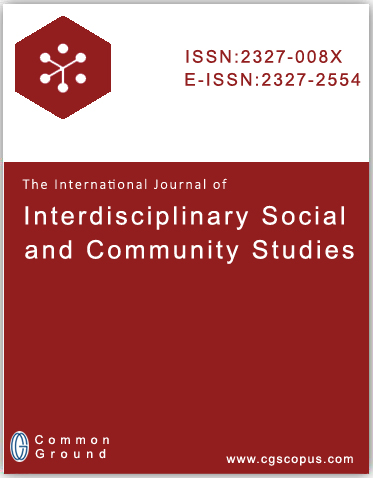The Perceived Impacts of Demographic Factors and Sustainable Transportation Policies on Job Satisfaction and Retention of Academic Staff in Nigerian Private Universities Adedotun Joshua Adewumi (PhD)1& Adeshina Akinwumi Ojo (PhD)2 Job satisfaction and ret
DOI:
https://doi.org/10.18848/7hj5tc83Abstract
Job satisfaction and retention among academic staff within the Nigerian private universities are influenced by the interplay of a chain of factors. Existing literature highlights the link between employee well-being and organizational sustainability and the influence of demographic factors on job satisfaction and retention. However, there is limited empirical studies on interplay of demographic factors and sustainable transportation policies on job satisfaction and retention within Nigerian private universities. This study investigated how demographic characteristics, interact with academic staff perceptions of available sustainable transport to influence their job satisfaction and intention to stay. The concepts of Sustainable transport policy and Herzberg‘s Two-Factor theory anchor this study. The study adopted a mixed method approach, using cross-sectional survey to collect data on demographic factors (age, gender, marital status, educational qualifications, years of experience, and position within the university) and sustainable transportation policies (public transport, cycling and walking) and their perceived impacts on job satisfaction and retention from 300 respondents randomly selected. Both descriptive and inferential statistics were used in explaining the phenomena. Males were 182 (62.4%) and females 112 (37.6%). Average years spent lecturing was 6.59 years. Analysis of Pearson Product Moment Correlation Coefficient reveals that age was positively correlated with job satisfaction (r = .27, p < .01). Multiple Regression analysis shows that years of teachings (β = .18, p < .01) were significant predictors of job satisfaction). Qualitative analysis revealed that sustainable transportation options (provision of public transport) eased commuting burdens, particularly for staff with longer commutes. The study concludes that consistent and effective implementation of sustainable transportation policies and good organisational climate are crucial long-term sustainability of private universities in Nigerian.










